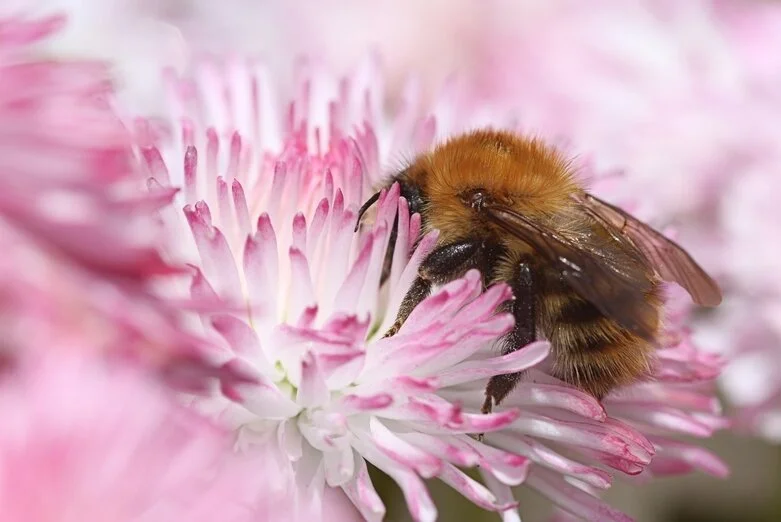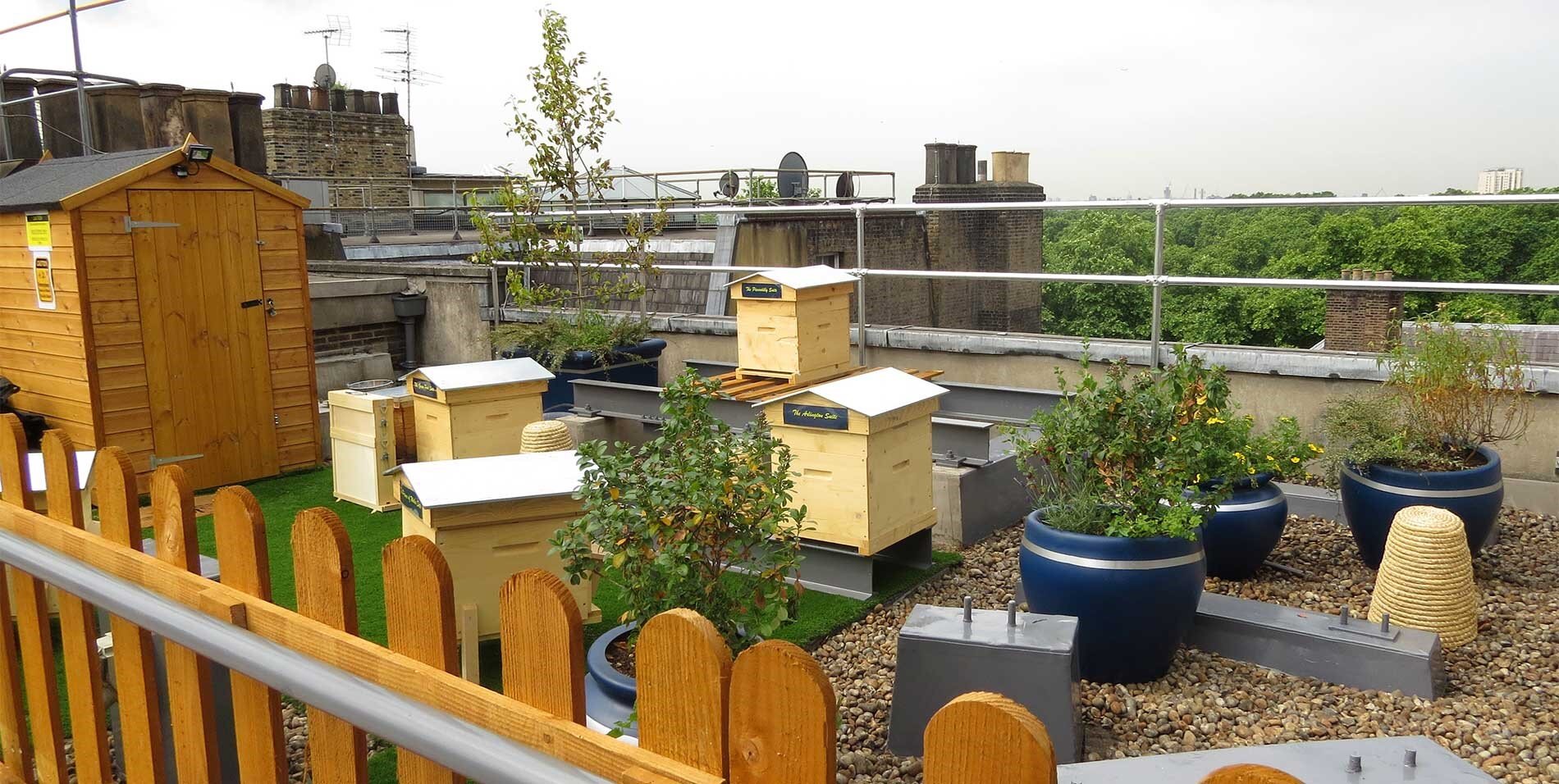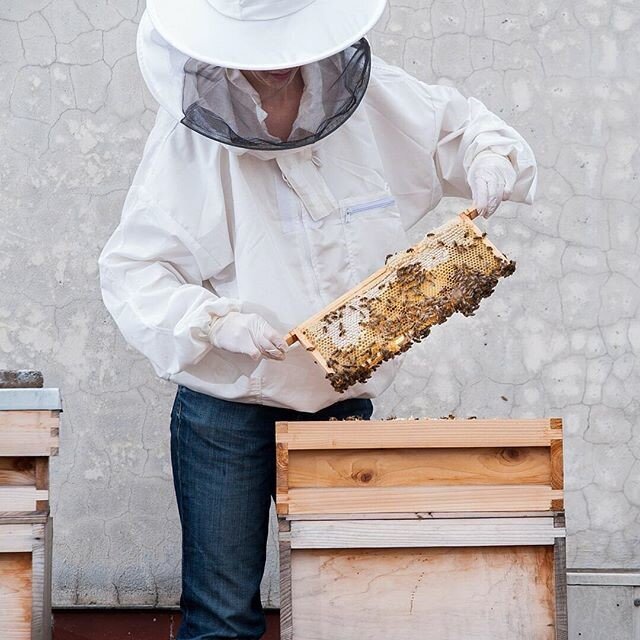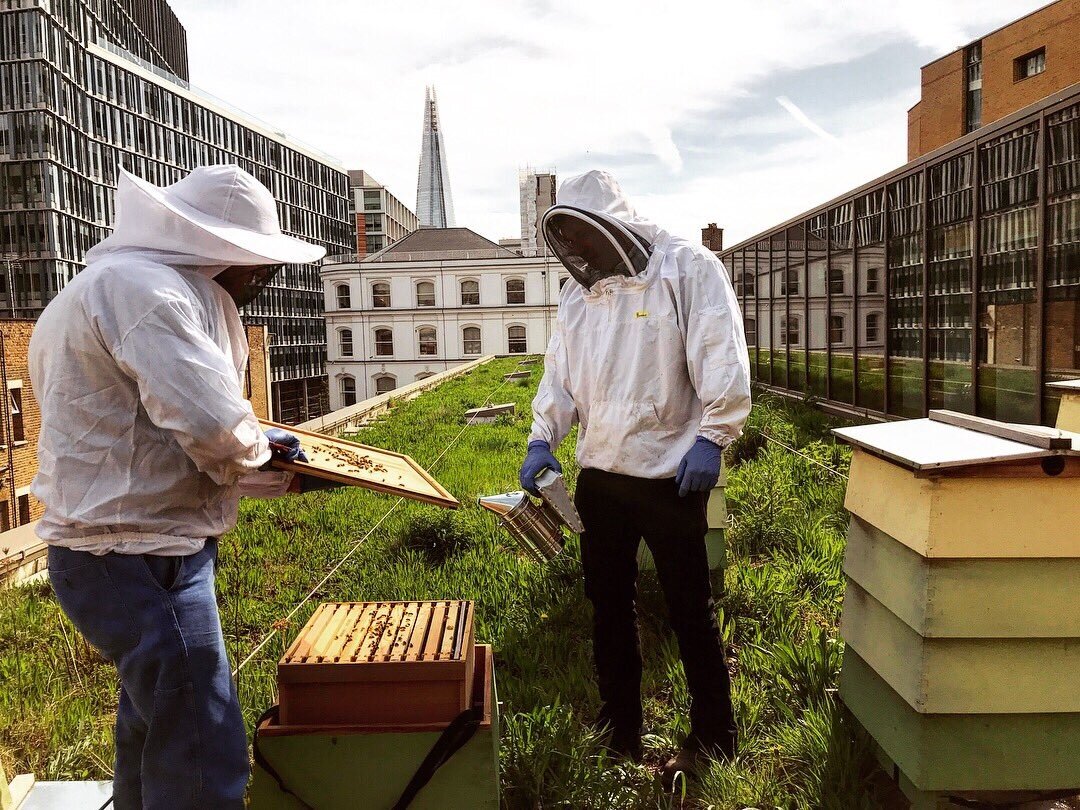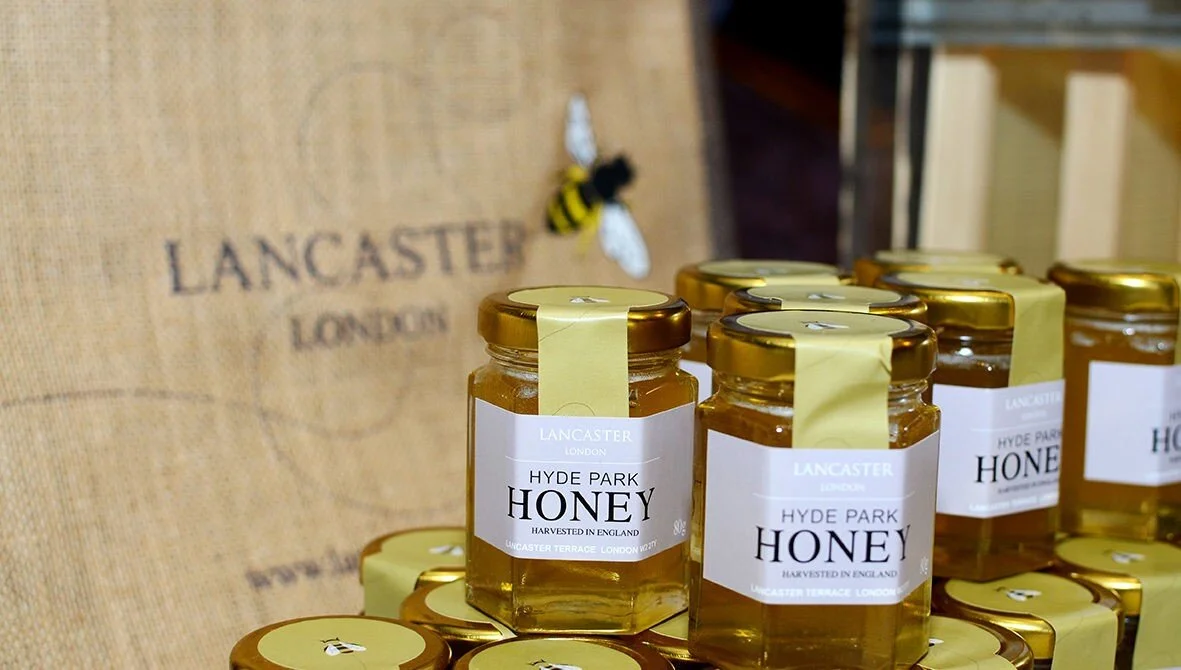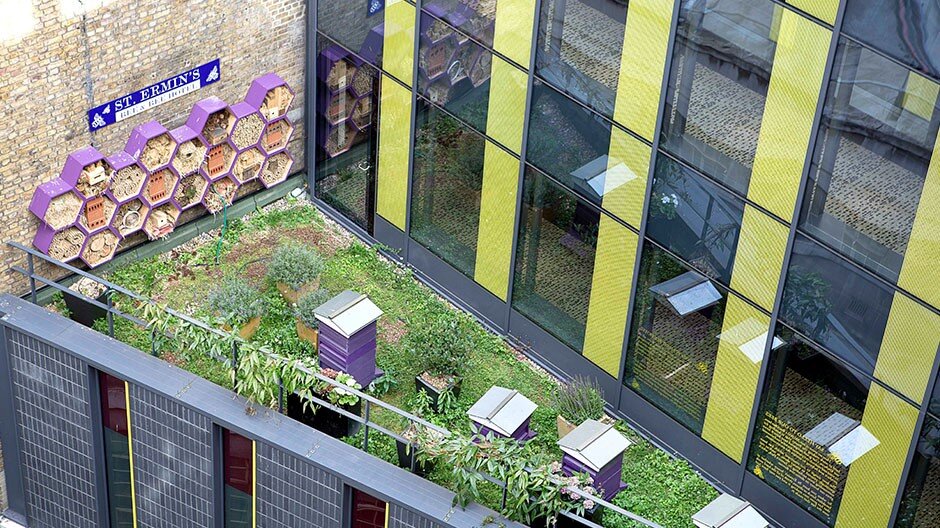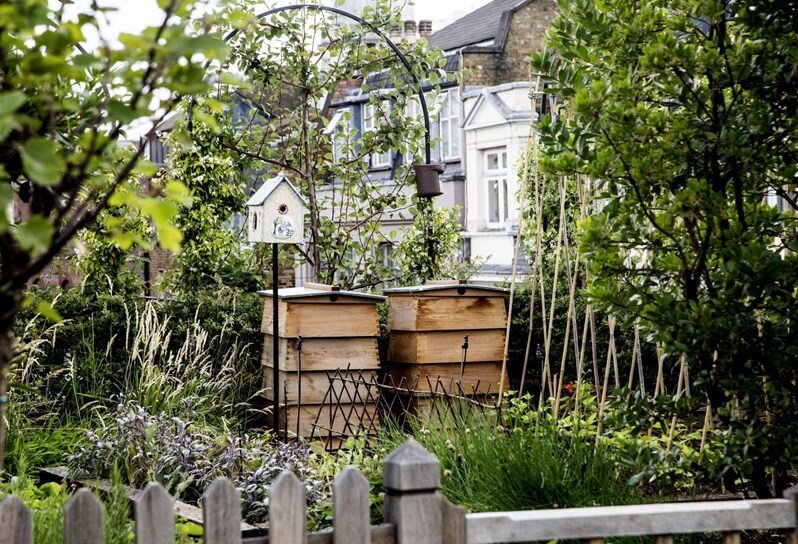London is Buzzing
Following Chloé Charmillot’s blog post “Sustainability: Tips To Getting Hotels On The Green Track”, I decided to explore the initiatives London hotels are taking in regard to their outdoor space. Guess what…London is buzzing!
Let it Bee
Bees have an essential role in our eco-system and unfortunately due to pesticides, climate change and pollution, their numbers are rapidly declining. The public awareness of the disappearance of our flying friends is high, meaning beehive and bee hotels are becoming more common, especially in urban areas.
Unknown to many, beehives can be found on numerous rooftops across the city, even on some of the capital’s landmarks such as the Museum of London, Fortnum & Mason, the Lloyds building and the London School of Economics.
According to the UK National Bee Unit (NBU) 2019 annual report, there are 6,206 registered beekeepers and 7,756 apiaries recorded in the South East region of the UK. Beekeepers don’t have an obligation to register their beehives and therefore it is estimated that London has over 5,500 - a healthy increase from 1,700 in 2008 and 3,500 in 2013. Each hive consists of an average of 30,000 honeybees - pretty significant numbers!
Hotel’s Catching the Buzz
The Ritz
In the summer of 2017, the hotel installed five hives on its sixth-floor roof naming them after five of their suites - Green Park Suite, Piccadilly Suite, Prince of Wales Suite, Royal Suite and Arlington Suite. Adjacent to the city’s famous parks, the location is ideal for the bees to go about their daily tasks of searching for food, pollinating flowers and collecting nectar. The hotel has trained 12 beekeepers to maintain the hives safely, in order to produce the London flavoured honey then used by the hotels Chefs.
The Chesterfield Mayfair
The hotel has installed four hives on its roof housing over 120,000 bees, producing 72 kg of honey per harvest every summer. The bees have access to an extensive range of flowers in the nearby gardens such as Buckingham Palace, St. James’s Park and Clarence House, resulting in a deep flavoured honey that guests can enjoy every morning with their toast.
Hilton Bankside
In May 2016 the hotel installed four beehives on the rooftop meadow, in partnership with the honey producers “Bermondsey Street Bees”. The garden is filled with a variety of wildflowers, which creates the perfect calm environment for the bees to produce 70kg of honey every year. The honey is then used by the Executive Chef and bar Mixologist, providing guests with the opportunity to taste it in different dishes and cocktails.
Royal Lancaster
The Royal Lancaster debuted its bee farm back in 2009, installing five hives on the roof. Today the farm consists of over 10 hives with thousands of bees producing approximately 18 kg of honey per hive. The hotel is situated next to Hyde Park, the main source of nectar for the bees, and the honey tastes very citrusy due to the large amount of lime trees in the park.
St. Ermin's Hotel, Autograph Collection
On the third-floor rooftop of the St. Ermin’s Hotel, the guests can safely watch the 350,000 hard-working bees from behind a glass window, making honey then used by the hotel’s kitchen. While some bees live in the hives, others are welcome to stay at the “Bee & Bee Hotel” made of bamboo and hexagonal boxes, also home to other types of insects such as lacewings and lady birds.
Ham Yard Hotel
Located in the busy Soho area, the Harm Yard hotel harvested their first honey batch in the summer of 2015. The two beehives are located on the fourth-floor roof terrace, surrounded by bee friendly plants and a vegetable garden. The honey produced is then used by the bar staff in the cocktail menu.
Bee Positive
In our continued efforts to live more sustainable lifestyles, the introduction of beekeeping operations at hotels is an advancement to be proud of. It is raising awareness of the importance of bees to our eco system, supporting the production of local food and showing guests that we are taking note and efforts to protect our local environment.
It is estimated that one-third of the food we consume each day is pollinated by bees. By helping the bees, we are helping ourselves.
Fancy a beehive on your hotel rooftop too? Check out The British Beekeepers Association to get started!
Author: Yonathan Shenkar
Yonathan joined Hamilton Hotel Partners in August 2019 to support the asset management of a 36 hotel portfolio.
Prior to joining Hamilton, Yonathan gained exposure to the hospitality industry through work experience at the head office of Marriott International in Asia Pacific and further operational experience in Switzerland and Israel.
Yonathan graduated from the Ecole Hôtelière de Lausanne with a Bachelor of Science in International Hospitality Management, with a focus on Hotel Planning & Development and Hotel Asset Management.

